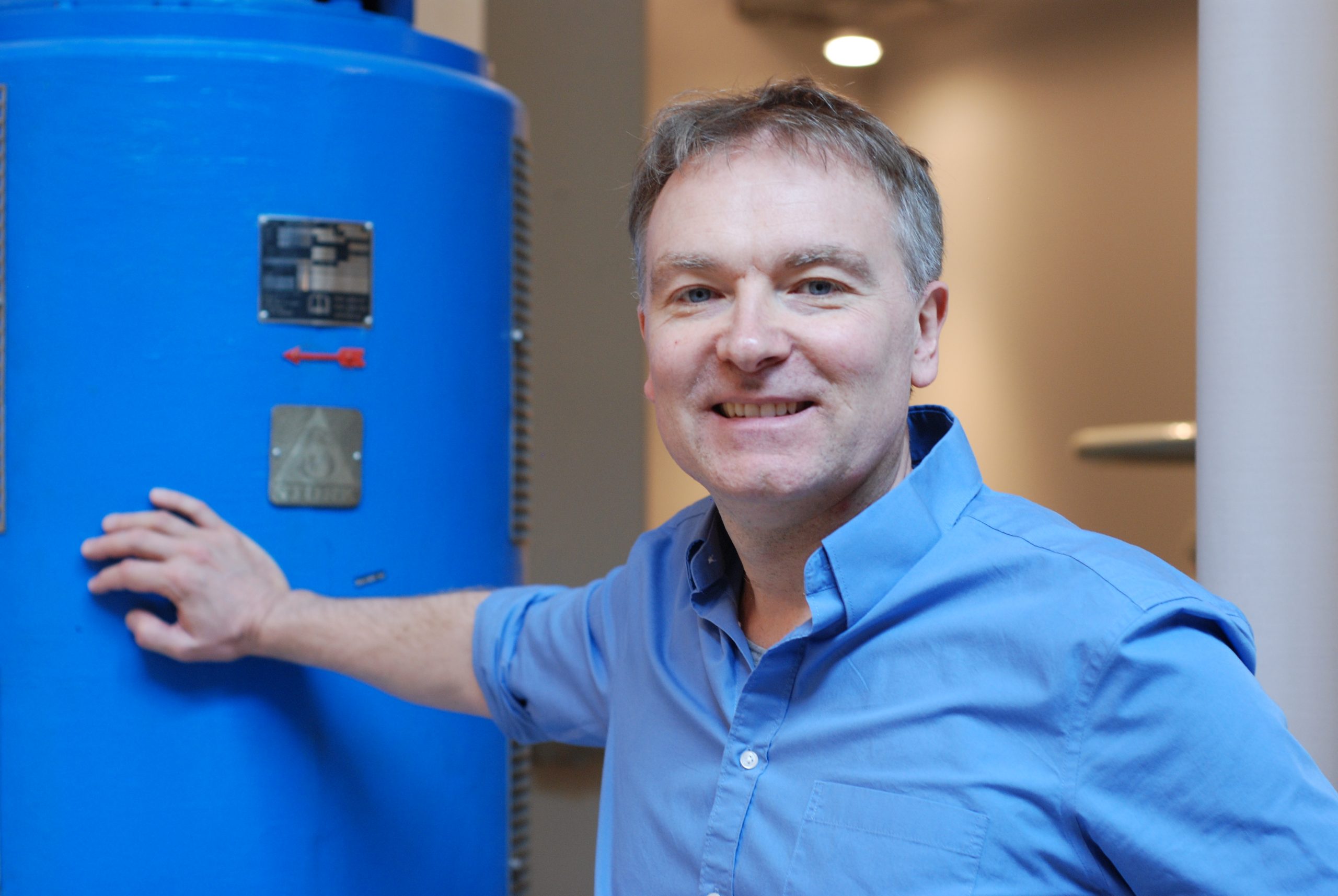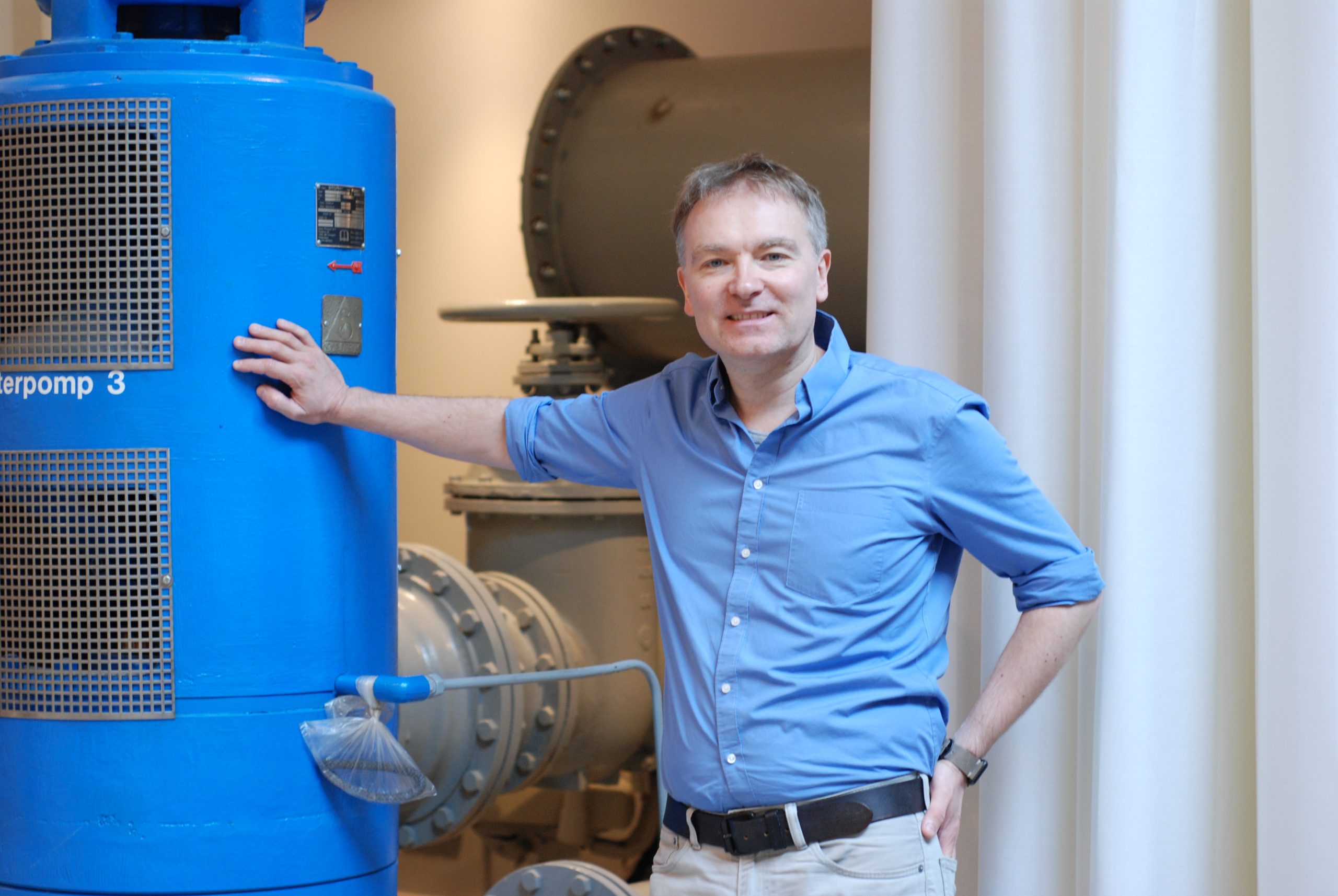Claus Neeleman - Trainer
Engineers and technical professionals are used to thinking of their advisory role as related to content alone. But if they want the customer or stakeholder to take action on the advice they offer, something else is needed: acceptance from the person for whom the advice is intended. That’s where sales skills come in. Claus Neeleman trains technical experts in successful advisory sales. ‘Once you understand how the sales process works, you can advise much more effectively. Both external and internal customers. Leading to a positive effect on your company’s results.’
Consultative selling, or advisory sales, is an effective sales method and therefore receives a lot of attention. According to trainer Claus Neeleman, this attention is justified. ‘Advisory sales is the best thing for the customer, it is about finding the best solution for that customer and matching it to your own interest, namely the margin on the products or services that you sell. Advising and selling are therefore both important. The trick is to create value for the customer. That value is in good advice that yields more than what the customer pays for it. In engineering companies, engineers have an important, supporting sales role, because they know exactly what matters in terms of technical content. To sell something in the high tech environment, it is the content that sells, not the sales talk.
'Advisory sales is the best thing for the customer, it is about finding the best solution for that customer and matching it to your own interest, namely the margin on the products or services that you sell.'

Claus Neeleman trains technical experts in successful advisory sales.
'The trick is to create value for the customer. That value is in good advice that yields more than what the customer pays for it.'
Neeleman has a friendly personality and an intelligent glance. He is qualified as an occupational and organisational psychologist. He has worked at an assessment agency, at a reintegration agency, and amongst other things as regional manager. ‘When you carry out an assessment, you analyse and test people, which I thought was super fun and still do. You find out how to see people’s qualities and pitfalls, with an aim to helping them improve. At the reintegration agency, that didn’t always help, because in that environment commerce plays a major role. This sometimes results in moral dilemmas. Do you help the person you have to put a lot of energy into, or the person who doesn’t cause much bother? I did this type of work mainly to help people move forward in their careers and their lives, so such choices were not what I wanted. That’s why I decided to become a trainer. Of course, I also took training courses myself and discovered that it is a fascinating field. Training is something positive. People improve after taking a training course, they like it and are enthusiastic afterwards. That gives me energy. And I find it more fun to talk and to be busy with people than to write reports at a desk.’
Lots of practice
Neeleman has been working as a trainer for some eighteen years. He focuses mainly on practical skills. ‘Many of the things that I tell you come from psychology together with insights from the field about how you can influence people and what the effects are. The content of a conversation can therefore be the same, but the strategy of transferring that content to another may differ. The best approach depends upon the situation and the people in question. I firmly believe that practice is the best way to learn how to sell, for example, in an advisory capacity. The theory behind it is not complicated at all, but to better address conversations with customers you first have to experience what it is like when you try out different behaviour.’
'To better address conversations with customers you first have to experience what it is like when you try out different behaviour.'
Teacher of the year
For several years now, Neeleman has been giving two training courses at High Tech Institute: Effective Communication Skills for engineers and Sales skills for engineers. In 2016, he was appointed trainer of the year by the High Tech Institute, with an evaluation score of 9.1 out of 10. Trainees called him impressive, inspiring and empathetic as a teacher and say that he is excellent at explaining things and tailors the course right to their needs.

In 2016, Claus became High Tech Institute’s ‘Teacher of the year’.
'To every advise moment, belongs a sales moment.'
That is quite special, because selling is not the favourite job of technology professionals…
‘Correct. They also often think that they only give advice. But that is incorrect. What is not seen is that they use less effective strategies in conversations with the customer. The result however is noticeable: as soon as the customer puts them under pressure, they already give a discount that is not in their interest. Or they are too customer-friendly and forget to make agreements about the remuneration for their consultancy work. Or they are unclear about the costs. During an on-going contract, a sales moment belongs to every advice moment. You have to pay attention to that.
But also, in the initial phase of contact with the client, a technician must be sufficiently convincing to make the sale of a service or product succeed. How do you ensure that you come across well and generate trust? How do you give the customer the idea that you are strong enough to carry out the project? You have to create trust and adapt your communication style to the customer and what is important to him/her. Both with regard to content and personal interaction. And if you work together with an account manager you have to learn to speak one another’s language, so that you know what your colleague’s intentions are and what the other person is doing in the sales process. The sales person must of course also know when the content is important.’
That sounds pretty difficult.
‘In reality it’s not such a big deal! The theory is a tool, a model that tells you which steps to take. Analytical people, such as technicians, can handle this very well. For example, the theory is that you yourself often generate resistance from the customer. This happens, for example, if you are more concerned with your own goals than with those of the customer. Or if you put too much pressure on them. That is what we call counter-behaviour. For example, if you constantly know things better than your customer, they will start to object. And if you are too dominant in the speed at which you talk about things or try to enforce a decision, this also provokes resistance. Counter-behaviour doesn’t help you sell your solution. But if you connect with your customer and go into a constructive dialogue, you will build things. The customer then moves on with you much more smoothly. If you encounter resistance during a conversation, you can adjust it by adjusting your behaviour. For example, by leaving more of the pace during the conversation to the customer and by clearly putting his/her interests first.’
Do you yourself have to change in order to sell better?
‘That’s not necessary at all. You just remain yourself, you only choose to exhibit different behaviour in certain situations in order to be more effective in your performance. If you are aware of the way a sales process progresses and you know what works, you can determine much more effectively what effect you want to have on others. It is not about right or wrong. You can reach your goal in many ways. But if you want to bring your story on stage successfully, it will certainly help if you know how to carry out advisory sales. And you can easily do that without forcing yourself into a situation that you don’t like.
'As soon as you understand the sales process, you can advise more effectively. '

What is the secret of a successful advisory sales conversation?
‘You need two ingredients: a good sound story and acceptance by the customer. The latter refers to ensuring that the customer can accept your advice. You do this by raising questions, feelings and doubts that could prevent the customer from accepting your product or service and giving good answers. Interviewing your customer based on the signals s/he gives you is not easy for technicians, because technicians deal mainly with facts and less with emotions. But, with a little practice, they can learn how to do this.’
How does such a conversation proceed?
‘The first phase is the contact phase. Technicians often find it difficult to get through this part and prefer to go straight to the content. But the first phase is important for generating trust and for creating a good personal relationship. In this phase, you also decide what you are talking about. You show that you have thought about the customer’s problem and you indicate that you already have a few ideas. In the contact phase you also agree on your way of communicating with the customer. If you have the same communication style, that’s easy. A customer can also be very directive and want to decide quickly. As a technician you have a tendency to look at a problem from all sides, but this type of customer gets irritated by that. So, if you find that time and money are important goals for a customer, then you have to respond to that information. You will then get more space for the content later in the conversation.
In the second phase you will make an inventory, thus mapping out the customer’s needs. You have proven effective methods for that. As a result, the customer recognises the scope of his/her problem and wants to take action. You cannot achieve that by saying that they have a big problem, you do that by asking questions. This leads to a sense of urgency, the idea that something has to be done.
The third phase is the presentation of your advice, where you show your skills and influence people. In the fourth and final phase you help the customer to come to a decision by taking steps together in the decision process. This is the actual advice work.
All in all, an advisory sales conversation is more about the customer than about you. The customer is king.’
Tips from Claus
‘Be happy with critical questions or reactions, because this is the moment when you have contact about the content. When this happens don’t try to be smarter or question the question, instead, go deeper into it because there is a fear or worry hidden behind such a question. So, take a step towards the customer by using criticism as positive input. After all, the customer knows the most about the problem for which s/he needs your advice. The beauty of this is: what you learn during this training course, you can also apply in other situations inside and outside your company. Acceptance comes with every deal. It’s all about influencing.
This article is written by Mathilde van Hulzen, tech editor of High-Tech Systems.
Recommendation by former participants
By the end of the training participants are asked to fill out an evaluation form. To the question: 'Would you recommend this training to others?' they responded with a 9.1 out of 10.

